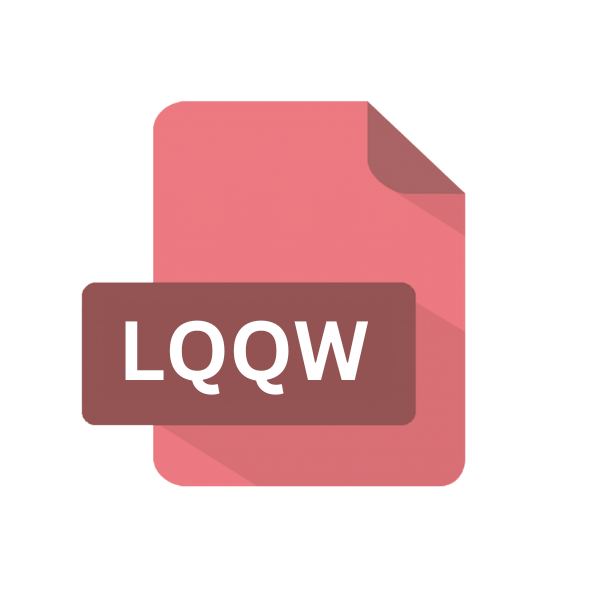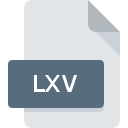.LQQW File Extension

LQQW Ransomware Encrypted File
| Developer | N/A |
| Popularity | |
| Category | Encoded Files |
| Format | .LQQW |
| Cross Platform | Update Soon |
What is an LQQW file?
In the realm of cybersecurity, the .LQQW file extension is not just a sequence of characters; it represents a hostage situation in the digital world.
Files bearing this extension have fallen victim to the LQQW ransomware, encrypting precious data and holding it for ransom.
Understanding the origin, structure, and potential solutions for these files is crucial in combating such cyber threats.
More Information.
The history of the .LQQW extension is intertwined with the evolution of ransomware as a cyber threat. Ransomware, in general, has been around for decades, but its prevalence surged in the digital age due to the increasing interconnectedness of systems and the potential for financial gain.
The LQQW ransomware emerged as a variant within this landscape, aiming to extort money from victims by holding their data hostage.
Origin Of This File.
The .LQQW file extension owes its existence to the nefarious activities of cybercriminals who deploy the LQQW ransomware.
These malicious actors exploit vulnerabilities in computer systems, often through phishing emails, malicious links, or software vulnerabilities, to gain unauthorized access.
Once inside, they encrypt files using strong encryption algorithms, appending the .LQQW extension to each compromised file.
File Structure Technical Specification.
Files encrypted with the .LQQW extension transforms their structure, rendering them inaccessible without the decryption key held by the attackers.
While the exact technical specifications may vary between different versions of the LQQW ransomware, they typically employ robust encryption algorithms such as AES or RSA to secure the files.
The encrypted files often bear the original filename followed by the .LQQW extension, signifying their compromised state.
How to Convert the File?
Converting files encrypted with the .LQQW extension back to its original format typically involves decryption, which requires obtaining the decryption key. Here’s a general guide on how to attempt file conversion:
1. Obtain the Decryption Key:
- Contact the attackers: In some cases, the attackers may provide instructions on how to pay the ransom and receive the decryption key. Paying the ransom is not recommended due to ethical and legal concerns.
- Utilize decryption tools: Cybersecurity researchers often develop decryption tools that can recover files encrypted by certain ransomware variants, including LQQW. Check online resources and cybersecurity forums for any available decryption tools.
2. Decrypt the Files:
Once you have obtained the decryption key or a decryption tool, proceed with decrypting the files:
- If using a decryption tool, download and install it on your computer according to the provided instructions. Then, follow the tool’s interface to select the encrypted files and initiate the decryption process.
- If you have obtained the decryption key, some decryption tools may allow you to manually input the key to decrypt the files. Follow the tool’s instructions for this process.
3. Verify File Integrity:
- After decryption, verify that the files have been successfully restored to their original state. Open a few decrypted files to ensure they are accessible and intact.
- If any files appear corrupted or incomplete, attempt the decryption process again or seek assistance from cybersecurity experts.
4. Take Preventive Measures:
Once your files have been successfully decrypted, take proactive measures to prevent future ransomware attacks:
- Update your operating system and software regularly to patch known vulnerabilities.
- Install and maintain reputable antivirus and antimalware software to detect and prevent ransomware infections.
- Practice safe browsing habits and exercise caution when opening email attachments or clicking on links from unknown or suspicious sources.
- Implement robust backup strategies to regularly back up your important files to an external storage device or a secure cloud storage service. This ensures that you have copies of your data in case of future ransomware attacks.
Advantages And Disadvantages.
Advantage:
- Effective Encryption: The .LQQW file extension employs robust encryption algorithms, making it extremely difficult for unauthorized parties to access or tamper with the encrypted files. This level of security ensures that sensitive data remains protected from unauthorized access.
- Monetary Gain for Cybercriminals: From the perspective of cybercriminals, the deployment of the LQQW ransomware and the .LQQW file extension represents a lucrative opportunity for financial gain. By encrypting files and demanding ransom payments for their release, attackers can extort money from victims with relative anonymity.
- Heightened Awareness: Incidents involving the .LQQW file extension serves as a wake-up call for individuals and organizations to bolster their cybersecurity measures. The threat posed by ransomware underscores the importance of implementing robust security protocols, conducting regular backups, and staying vigilant against potential cyber threats.
Disadvantage:
- Data Loss and Disruption: Victims of the LQQW ransomware may experience significant data loss and operational disruption as a result of files being encrypted with the .LQQW extension. This can have far-reaching consequences for individuals, businesses, and organizations, impacting productivity, reputation, and financial stability.
- Trust Erosion: The prevalence of ransomware attacks, including those involving the .LQQW file extension, can erode trust in digital systems and undermine confidence in online transactions. This can lead to reluctance to adopt new technologies, conduct business online, or share sensitive information electronically.
- Ethical Dilemma: Paying the ransom demanded by cybercriminals to decrypt files encrypted with the .LQQW extension raises ethical concerns. While it may seem like the quickest solution to regain access to valuable data, it also perpetuates the cycle of ransomware attacks and incentivizes further criminal activity, potentially emboldening attackers to target more victims in the future.
How to Open LQQW?
Open In Windows
- Decryptor Tools: Look for decryption tools specifically designed to handle files encrypted with the LQQW ransomware. These tools are often developed by cybersecurity researchers and may be available for free or for a fee.
- Third-Party Software: Some third-party software solutions claim to decrypt ransomware-encrypted files, including those with the .LQQW extension. Research and select reputable software from trusted sources to avoid further harm to your system.
Open In Linux
- Decryption Tools: Search for decryption tools compatible with Linux systems that support the decryption of .LQQW encrypted files. These tools may be available through Linux repositories or from cybersecurity forums and websites.
- Command Line Utilities: Linux users proficient in command line operations may attempt to decrypt .LQQW files using specialized command line utilities designed for ransomware decryption. Exercise caution and ensure you follow instructions carefully.
Open In MAC
- Decryption Tools: Look for decryption tools tailored for macOS that claim compatibility with .LQQW encrypted files. These tools may be available for download from reputable cybersecurity websites or macOS software repositories.
- Security Software: Some antivirus or security software suites for macOS include features for decrypting ransomware-encrypted files. Check if your security software offers this functionality and follow any provided instructions.
Open In Android
- Mobile Security Apps: Explore mobile security apps available on the Google Play Store that advertise ransomware decryption capabilities. Ensure you choose apps from trusted developers with positive user reviews.
- Online Forums and Communities: Engage with cybersecurity forums and communities focused on Android devices to seek recommendations for decryption tools or methods tailored for .LQQW encrypted files on Android.
Open In IOS
- iOS Security Apps: Search for iOS security apps on the App Store that claim to offer ransomware decryption features. Be cautious and verify the legitimacy of these apps by checking developer credentials and user reviews.
- Online Resources: Consult online resources and communities dedicated to iOS security for guidance on decrypting .LQQW encrypted files on iOS devices. Experienced users or cybersecurity experts may offer valuable insights and recommendations.
Open in Others
For other platforms not covered above, such as Chrome OS or specialized operating systems, the options may be limited.
Consider reaching out to cybersecurity experts or communities specific to those platforms for advice on decrypting .LQQW encrypted files or recovering data from such files.
Explore the possibility of accessing the files from a compatible platform where decryption tools or methods are available.













